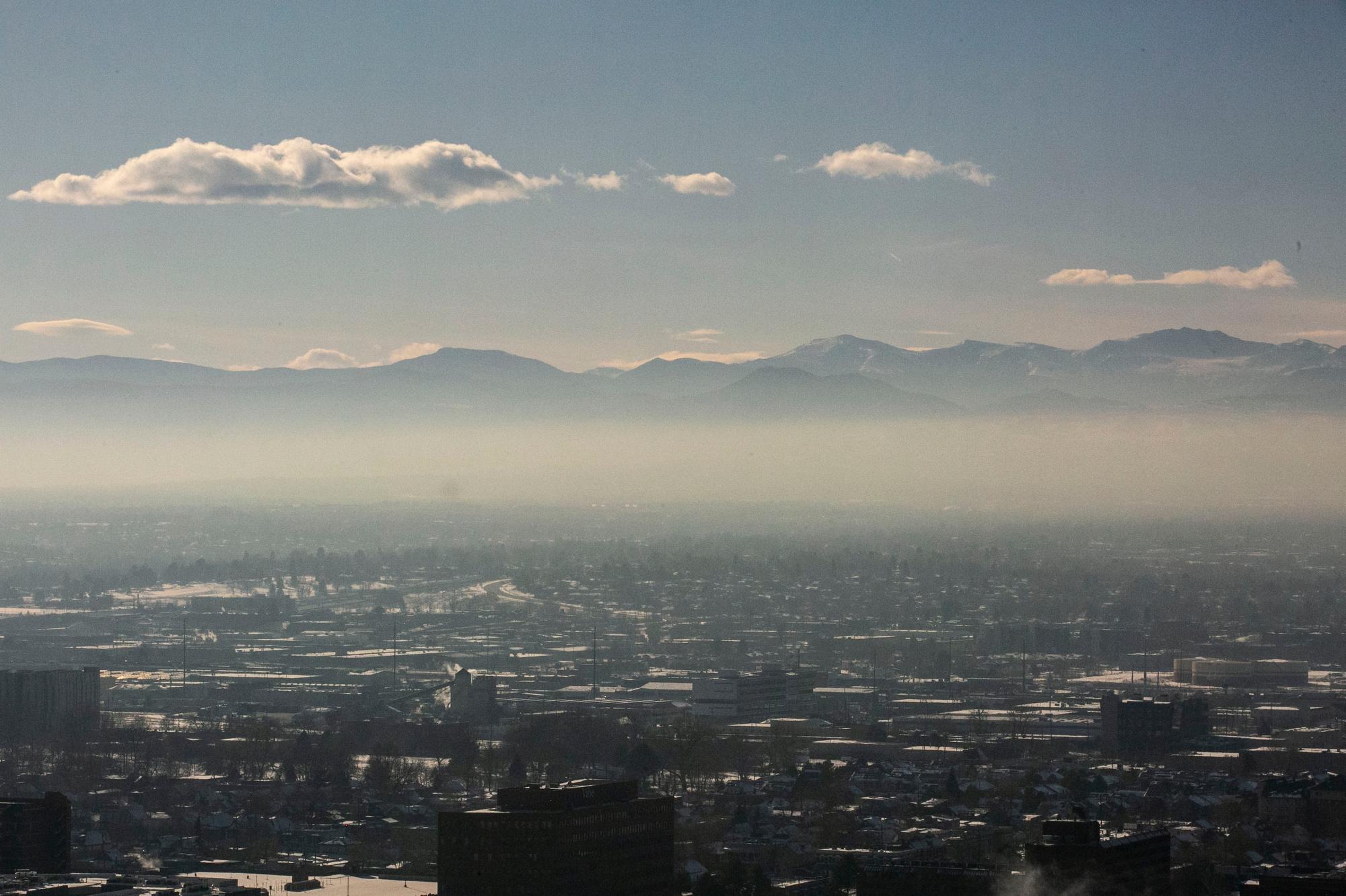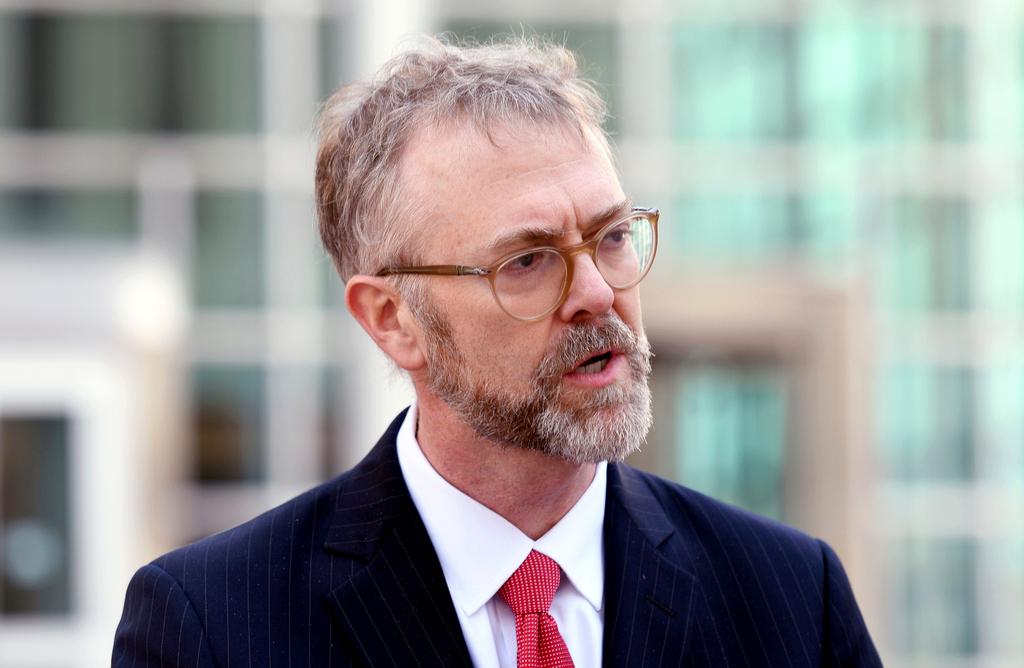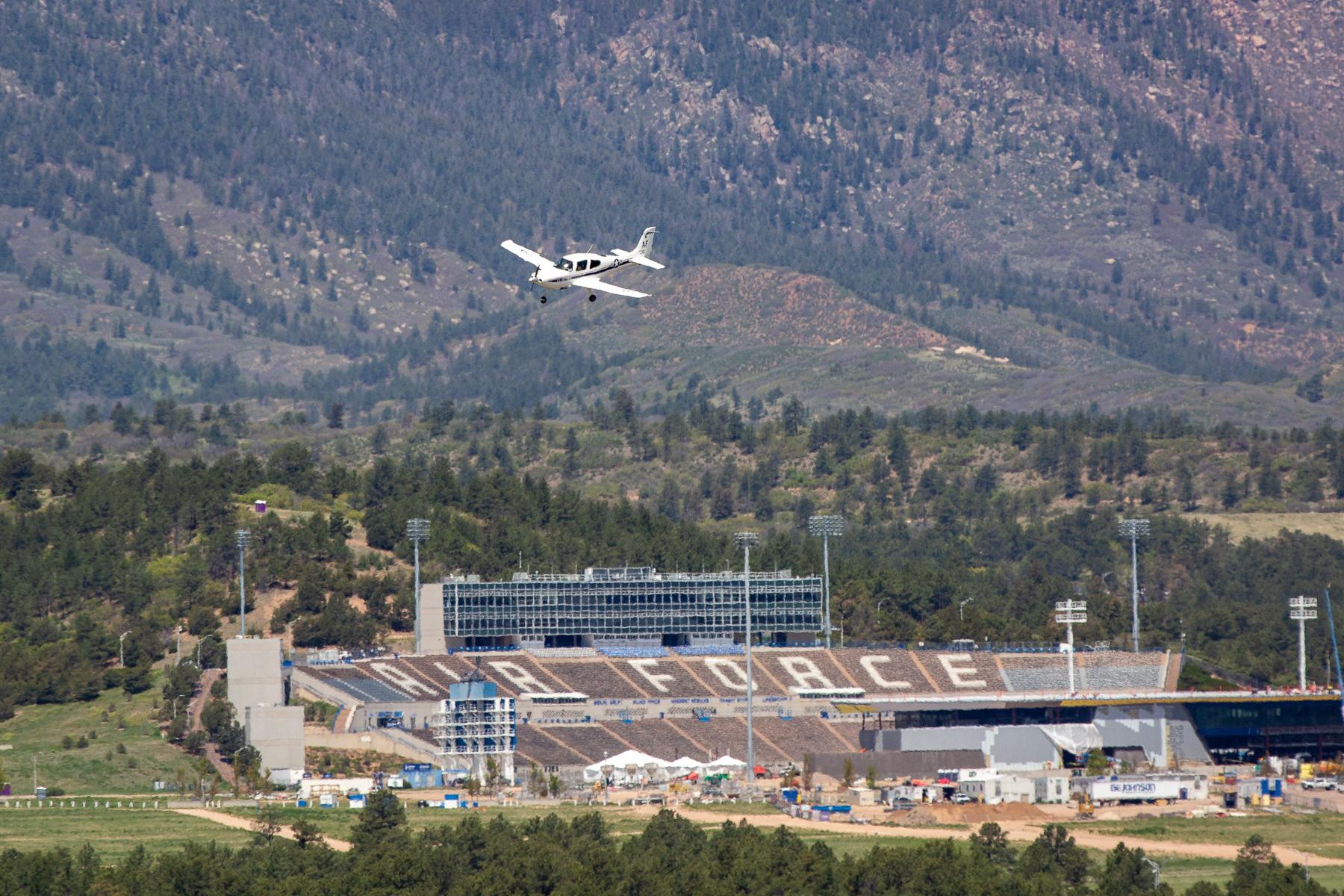
Updated April 2 @ 9:34 a.m.
Environmental groups want Gov. Jared Polis to remove Garry Kaufman, Colorado’s top air pollution regulator, after whistleblowers alleged the long-time bureaucrat ordered modelers not to analyze potential pollution violations and created a culture of approving permits “at all costs.”
A coalition of organizations — including the Colorado Latino Forum, WildEarth Guardians and 350 Colorado — released a letter to the governor Wednesday. The groups also are demanding a review of all other supervisors within the Colorado Air Pollution Control Division and a stop to all new or modified air pollution permits. The letter addresses Colorado Attorney General Phil Weiser as well, asking him to investigate whether to bring a civil lawsuit against state employees involved in the allegations.
“This is our Flint, Michigan. Government corruption at the sake of people’s health,” Colorado Latino Forum co-chair Ean Thomas Tafoya said.
The fallout comes as the Front Range struggles to meet federal air quality standards. State-regulated companies release compounds that form ozone pollution, which scientists have linked to heart and respiratory conditions. The pollutant is also a main ingredient in Denver’s smoggy “brown cloud,” which has started to reappear after its heyday in the 1970s and 1980s. The U.S. Environmental Protection Agency has already named the region a “serious” violator of federal ozone limits.
Whistleblowers allege they felt like they were being told to, "sit down, shut up and stop issuing these reports."
On Monday, the three whistleblowers filed a complaint claiming Kaufman ordered them to stop modeling for surges of specific pollutants at a meeting in mid-March. One of those compounds, nitrogen dioxide, is one of the main precursors of ground-level ozone pollution.
Under the new policy, the complaint alleges the direction from Kaufman meant facilities no longer had to prove compliance with short-term federal air quality standards. It also halted any review of violations within existing permits.
Kevin Bell, an attorney with Public Employees for Environmental Responsibility and lead counsel on the complaint, said the incident showed the state’s top regulators had become impatient with air modelers, who he said have a legal obligation to assess the potential risk of new pollution sources. Faced with evidence of potential violations, Bell said the team felt like they were being told to, "sit down, shut up and stop issuing these reports."
- Democratic Lawmakers Propose Plan To Hold Gov. Jared Polis To His Climate Promises
- Aurora And Colorado Springs Want More Water. The Proposed Solution — A New Reservoir — Would Have Far-Reaching Impacts
- Some Colorado Oil Workers Can See The Shift Away From Fossil Fuels Coming — And They Say They Need Help Navigating It
A guidance document for air quality modeling also disappeared from a state website in mid-March. The complaint alleges the moves amount to a formal policy change that should have been approved by commissioners overseeing the air pollution division. In another instance, the whistleblowers claim Kaufman ordered them to falsify data from Colorado’s only gold mine “to ensure that no modeled violation would be reported.”
PEER filed the complaint with the EPA’s Office of Inspector General, an independent organization that audits and investigates fraud, waste and abuse at federal environmental programs. It asks for a federal performance review and audit of Colorado’s Air Pollution Control Division, which operates within the Colorado Department of Public Health and the Environment.
If an investigation finds regulators deviated from federal standards, Bell says Colorado could lose federal funding or the EPA could strip its authority to regulate air pollution.
Over the last decade, advocates have pushed regulators to be more aggressive with Front Range polluters.
State employees Rosendo Majano, DeVondria Reynolds and Bradley Rink signed onto the document. One of the whistleblowers, who asked not to be named because the department doesn’t allow employees to speak to the press directly, said the modeling team only reviewed about 2 percent of all projects submitted to the state and that the others went without their oversight.
Kaufman began working at the air division in 2003, according to his LinkedIn page. After rising to deputy director, he took a hiatus to work as an environmental attorney for Holland & Hart, a Denver law firm, where he advised energy and mining interests. He rejoined the air division as the director in 2017.
Andrew Bare, a spokesperson for the department of health and environment, said the division could not respond to the specific allegations but defended the administration's general approach to air quality issues. Soon after taking office, Polis asked the EPA to downgrade the state’s status for ground-level ozone pollution, withdrawing a request for a waiver submitted by former Gov. John Hickenlooper.
The whistleblower complaint also focused on minor sources of emissions, like asphalt and concrete plans. Bare said there’s no law or regulation requiring the state to model pollution levels before permitting those kinds of facilities. Still, the state has opted to set its own guidelines and pollution limits, he said.
“These thresholds are consistent with EPA regulations, and our practice has higher standards than those implemented by many other states. Whether Colorado should have stricter standards is a valid question for policymakers to consider, but currently, there is no stricter state standard.”
Shelby Wieman, acting press secretary for Polis said the governor’s office is investigating the matter.
“It's important to note that Colorado is not in violation of any state or federal law or regulation with regard to modeling,” she said. “There are no federal or state laws in place governing the threshold to have modeling done for minor source permitting.”
CPR News attempted to contact Kaufman for comment about the calls for his dismal. Andrew Bare, a spokesperson for the Air Pollution Control Division, acknowledged the request but has yet to respond. A spokesperson for Polis did not reply to a request for comment.
Over the last decade, some environmental organizations and neighborhood groups have pushed state regulators to take a far more aggressive approach with Front Range polluters. Those demands have resulted in new legislation for increased air monitoring, but advocates say the state remains far too reluctant to deny permits after repeated air quality violations.
Jeremy Nichols, the director of the climate and energy program for WildEarth Guardians, said one clear example is the Suncor oil and gas refinery in Commerce City. Despite frequent air pollutants violations, the division has allowed the facility to continue to operate for expired permits for over a decade.
“We absolutely see a pattern in practice here of the state constantly putting polluter interests over the interests of people and impacted communities,” Nichols said. “The revelations this week, we view as the tip of the iceberg.”
Editor’s Note: This story has been updated to add comments from the Colorado Department of Public Health and Environment and the governor's office, and to correct the name of the compound referenced in the complaint.








